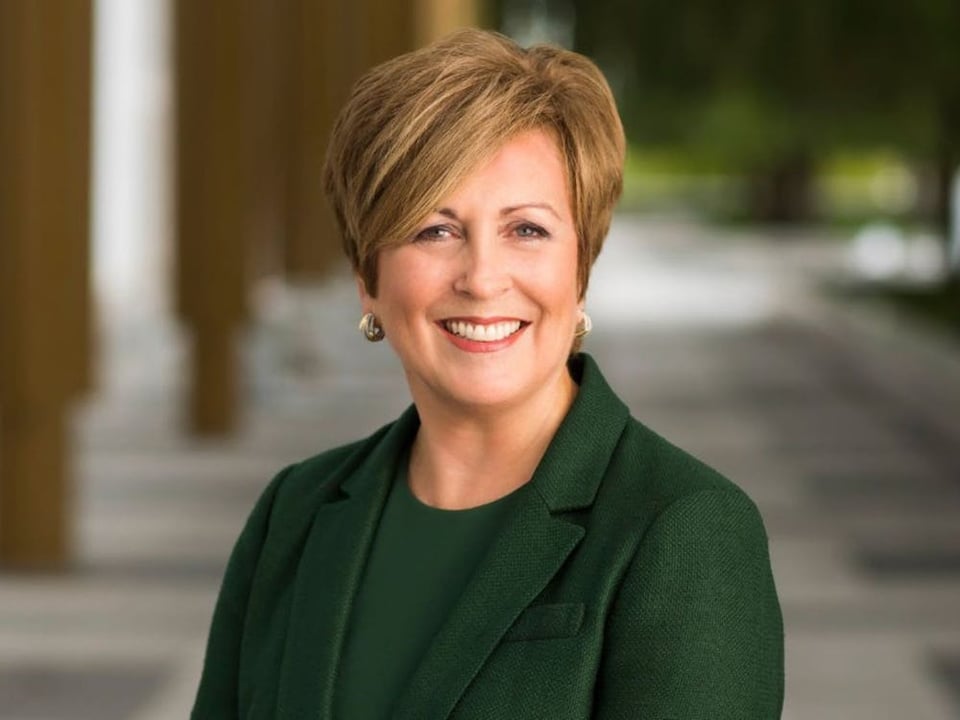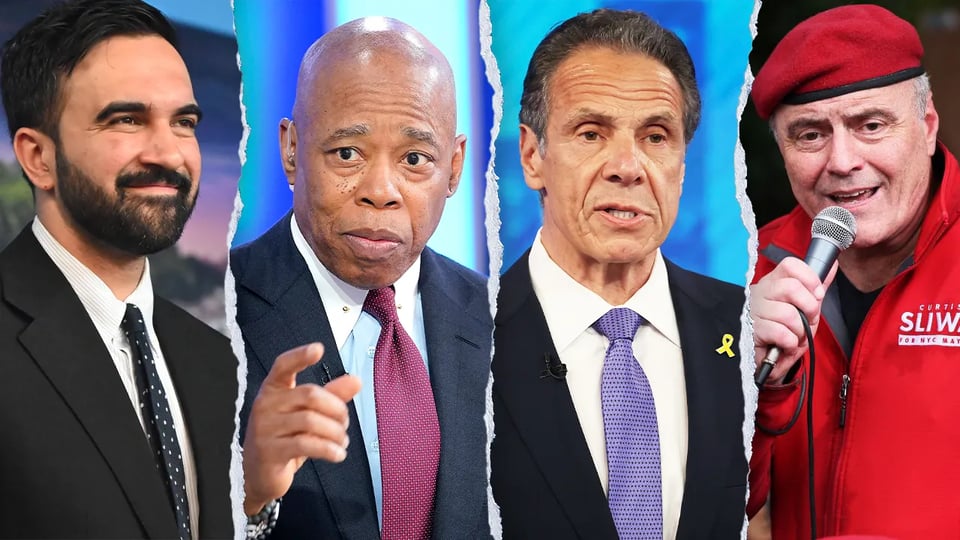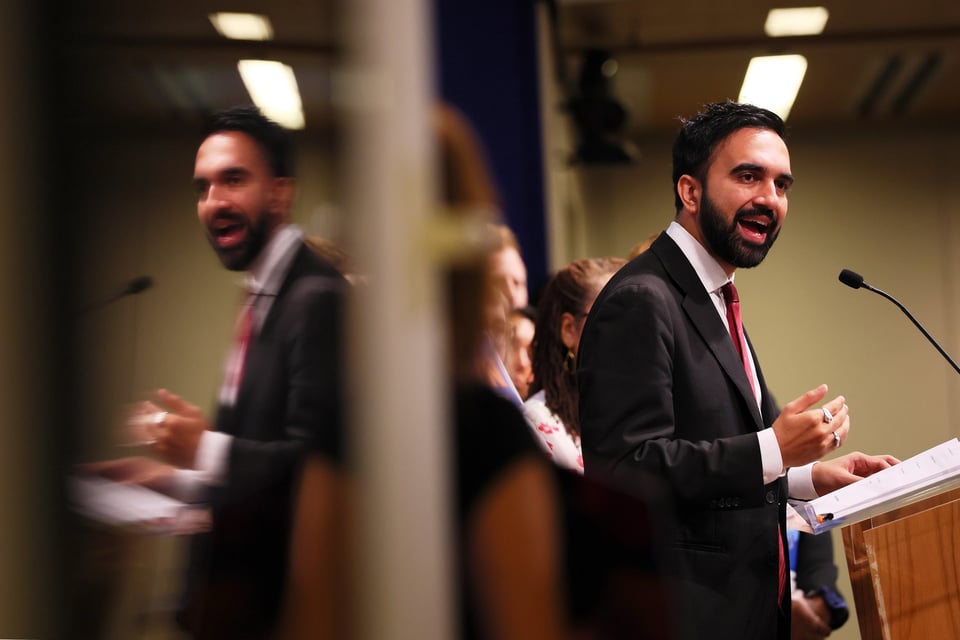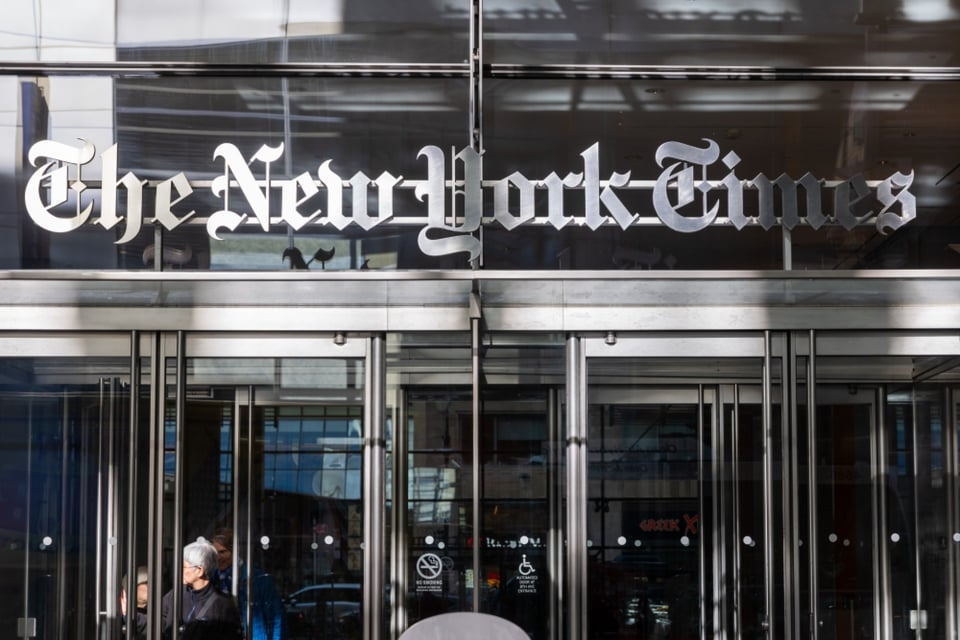Wednesday, July 16,2025. Annette’s Roundup for Democracy.
Sometimes the truth outs.

Inflation rose last month to its highest level since February as Trump's tariffs are pushing up the cost of a range of goods. https://t.co/c1elzKzGRB
— The Associated Press (@AP) July 15, 2025
Pay more. Get less. Trump’s version of America First. pic.twitter.com/mj5viZXN7O
— Governor Kathy Hochul (@GovKathyHochul) July 15, 2025
Sometimes Good People Fight Back.
Trump forced the University of Virginia President to resign. The faculty thinks that was a bad idea.
University Of Virginia Faculty Vote No Confidence In Governing Board

The University of Virginia Faculty Senate has voted that it has no confidence in the school’s Board of Visitors. The resolution of no-confidence in the Board passed 46 to 6, with eight senators abstaining.
The vote occurred on Friday, July 11, the same day that UVA President Jim Ryan officially stepped down from his post and released a video of farewell and gratitude to the campus community.
Ryan had been a popular and effective president for the university, but he had been under intense pressure from the Trump administration to resign in part because of his leadership on behalf of the university’s diversity, equity and inclusion programs, which the administration had claimed violated federal civil-rights law.
Ryan, who had served since 2018 as the university’s ninth president, said he was resigning “with a very heavy heart.”
“To make a long story short, I am inclined to fight for what I believe in, and I believe deeply in this University. But I cannot make a unilateral decision to fight the federal government in order to save my own job,” he said at the time he first announced his intent to resign. “To do so would not only be quixotic but appear selfish and self-centered to the hundreds of employees who would lose their jobs, the researchers who would lose their funding, and the hundreds of students who could lose financial aid or have their visas withheld.”
The Senate resolution cited several justifications for the no-confidence vote, including at attempt by the Department of Justice to improperly influence the governance of the University and the power of the university president to control the administrative direction of the institution; violations of the Constitution and Bylaws of the Faculty Senate of the University of Virginia; and the Board’s failure to inform or consult with the Senate over demands made upon the University by representatives of the U.S. Department of Justice. (Forbes)
Sometimes Good Things Happen to Good People.
Duke names former Kennedy Center president Deborah Rutter as vice provost for the arts.

Deborah Rutter, former president of the John F. Kennedy Center for the Performing Arts, was appointed vice provost for the arts in a Friday press release from Duke Today. Her term will begin Sept. 1.
Rutter, along with David Rubenstein, Trinity ‘70, chairman of the Kennedy Center and one of Duke’s top donors, was ousted abruptly by President Donald Trump in February as part of a major overhaul of the nation’s premier cultural center.
In her new role as the head of the Office of the Vice Provost for the Arts — also known as Duke Arts — Rutter will support faculty, administrators and students to cultivate the arts as part of the Duke education. She was appointed following a national search conducted by a committee including faculty and administrators from across the University. Rutter will succeed John Brown Jr., professor of the practice of music.
“It has been my life’s passion to enable the extraordinary talents of artists to inspire, challenge, console, delight and invigorate us through the free expression of their art and to facilitate broad accessibility to the transformative experiences they make possible,” Rutter said. “... The opportunity to collaborate across the campus to support strong, thoughtful, cultural leaders through increased arts programming, interdisciplinary programs and creative initiatives is a dream come true.”
As an established nonprofit executive for nearly five decades, Rutter served in leadership roles in a host of artistic organizations across the nation, most notably as the first female president of the Kennedy Center from 2014 to 2025.
During her tenure, Rutter spearheaded the center’s first physical expansion — the REACH — and “expanded programming to represent the diversity of art in America” by making Hip Hop Culture and Social Impact two central areas of programming, the center said in a press release.
“[Rutter] will be both an exciting director for our strong public-facing arts offerings and a key player in the support of an academic arts ecosystem that sustains the curriculum and faculty research at Duke,” said Paul Jaskot, chair of the department of art, art history & visual studies who led the search committee.
Rutter was previously recognized by the University as “one of the leading voices in arts administration” when she was presented with an honorary Doctor of Arts degree in 2023. Her Duke ties also include a stint as a guest lecturer and seeing her daughter Gillian Card graduate from Trinity College of Arts & Sciences in 2020.
Rutter holds a bachelor’s degree in music and German from Stanford University and a master’s degree in business administration from the University of Southern California.
Prior to her tenure at the Kennedy Center, Rutter held executive leadership roles with the Chicago Symphony Orchestra Association, the Seattle Symphony Orchestra, the Los Angeles Chamber Orchestra and the Los Angeles Philharmonic. She also served as co-chair of the American Academy of Arts and Sciences’ Commission on the Arts and continues to serve on its board of directors. (Duke Chronicle)
What is happening in that New York Mayoral Race?

Analysis by Steve Kornacki - Mamdani’s opponents are locked in a staring contest in NYC
Andrew Cuomo’s decision to stay in the race for New York City mayor means there are three major general election alternatives to Democratic nominee Zohran Mamdani. They each recognize that the only (arguably) plausible way of knocking off Mamdani is by consolidating opposition to him behind a single opponent.
But when they look at each other, they all think the same thing: Why would I ever drop out for this guy?

Left to right. Mamdani. Adams. Cuomo. Sliwa.
Start with Cuomo. All of the available polling since the June primary has him running ahead of both current Mayor Eric Adams and Republican nominee Curtis Sliwa in a multicandidate race against Mamdani. This is why Cuomo is calling for Adams and Sliwa to exit the race if they haven’t overtaken him by September.
But everything else about Cuomo’s position screams “weakness.” His 12-point Democratic primary loss to Mamdani amounted to a political humiliation, given that he came to the race as the overwhelming favorite. And while he runs second to Mamdani, Cuomo’s overall support in the available polling is between just 24% and 26%.
Resistance to the former governor, who left office in scandal four years ago, seems to run high. An Emerson College poll this spring gave him a 41-47% favorable/unfavorable mark with all New York City voters. And a survey released Monday by Data for Progress (which has done work for a pro-Mamdani group) pegged it at 39%-59%. At 67, Cuomo’s energy level has also come into question thanks to a limited public schedule and a series of public performances that were derided as listless.
The way Adams and Sliwa see it, Cuomo already had his chance to stop Mamdani, and he demonstrated that he wasn’t up to it. But good luck convincing Cuomo that either of them would fare any better.
As the incumbent, Adams has the ability to make noise and get attention practically at will. And with new numbers showing a decline in violent crime, Adams is trying to convince New Yorkers that he finally has the city pointed in the right direction.
But his liabilities are enormous. Even before his indictment last year on federal corruption charges, Adams was an unpopular mayor. And since the indictment – and maybe even more significantly, since President Donald Trump’s Justice Department dropped the case – the floor has fallen out for Adams. The May Emerson poll put his favorable rating at a mere 19%, compared to 68% unfavorable. None of the post-primary polling has looked any better.
For his part, Sliwa wields a bloc of voters simply by running on the GOP line. Republicans are a decided minority in New York City but still account for a little more than 1 in 10 registered voters. And Sliwa himself is a familiar presence to New Yorkers: He launched the Guardian Angels in the high-crime 1980s and has remained visible in local media ever since. But the limits of his appeal were seemingly made clear four years ago when, as the GOP nominee against Adams, he earned just 28% of the vote and lost by 40 points.
And so Cuomo, Adams and Sliwa find themselves locked in a staring contest. Each has a claim to a chunk of the electorate. Each has a belief that they could beat Mamdani, if only the others would go away. And each has every reason to believe that the others are full of it. (NBC News Politics)
Mamdani expected to clarify his position on ‘globalize the intifada’

NEW YORK — Zohran Mamdani plans to clarify his stance on the use of the phrase “globalize the intifada” as soon as this week as he consolidates support in his bid to be New York City mayor, four people familiar with the discussions told POLITICO.
The Democratic nominee is expected to publicly refine his position after previously declining to condemn the slogan in multiple interviews and news conferences over the past month — even as he has denounced antisemitism more broadly.
His shift would come after meetings this week with Jewish elected officials and business community leaders. Mamdani is seeking to expand his support among the Democratic establishment and assuage fears running rampant in C-suites across the city.
Mamdani’s campaign did not comment Tuesday on any moves the candidate would make to clarify his position on the phrase. But some Democrats welcomed the step as a significant gesture.
“Many Jews believe it is the bare minimum for Zohran to go beyond distancing himself personally from language like ‘globalize the intifada,’” said an aide to a Jewish elected official granted anonymity to speak freely about the sensitive matter. “He must proactively be clear that language that incites violence against Jews simply isn’t acceptable, from anyone, in the city he wants to lead.”
Senate Minority Leader Chuck Schumer and House Minority Leader Hakeem Jeffries have also referenced Mamdani’s defense of “globalize the intifada” — a rallying cry regarded as a call to violence against Jews for some and a call for Palestinian resistance to others — as they weigh whether to back his campaign for mayor.
Mamdani, a Queens state lawmaker who toppled former Gov. Andrew Cuomo in last month’s primary, was asked about the phrase last month in a podcast by The Bulwark. He said then that he hears it as a call for Palestinian human rights.
“That’s not language that I use,” the candidate told NBC News after winning the primary. “The language that I use — and the language that I will continue to use to lead this city — is that which speaks clearly to my intent, which is an intent grounded in a belief in universal human rights.”
Mamdani has also said that the words mean different things to different people.
An aide to a New York Democrat said, “Any walking back of the ‘globalize the intifada’ nonsense is desperately needed if Mamdani wants to quell the deep and legitimate concern that many in the Jewish community have of him in this moment.”
Mamdani’s reaction to the phrase has been a central part of many of his ongoing discussions with elected officials and community and business leaders, and several have said publicly and behind closed doors that they hoped he would walk back his statements.
He met Monday with about 10 Jewish elected officials in New York, a gathering convened by Rep. Jerry Nadler, a founder of the Congressional Jewish Caucus and the dean of New York’s House delegation. Nadler endorsed Mamdani immediately after primary night.
Mamdani also has the endorsement of Brad Lander, the Jewish city comptroller. When asked about the phrase, Lander told the Pod Save America podcast, “Maybe you don’t mean to say it’s open season on Jews everywhere in the world, but that’s what I hear.”
Mamdani met Tuesday with business leaders in the city, some of whom have been more concerned about his platform to raise taxes on the wealthy. He’s set to meet later this week with Jeffries, one of several Democratic leaders who have yet to endorse Mamdani. Mamdani also plans to meet with Schumer, the country’s highest-ranking Jewish elected official.
“What the ‘globalized intifada’ means is really wrong and should be condemned, and I look forward to my discussions with Mr. Mamdani,” Schumer told reporters earlier Tuesday in Washington. (Politico)
Massive changes at the New York Times.
NY Times Reassigns Four Critics in Culture Desk Shake-Up

The New York Times is revamping its lineup of arts and entertainment critics — replacing four of the paper’s TV, music and theater critics, who are being offered “new roles,” according to an internal memo obtained by Variety.
The quartet of Times critics — television critic Margaret Lyons, music critic Jon Pareles, theater critic Jesse Green and classical music critic Zach Woolfe — will “be taking on new roles, and we will be conducting a search for critics on their beats in the weeks to come,” New York Times culture editor Sia Michel wrote in a memo to staffers on Tuesday afternoon.
“We are in the midst of an extraordinary moment in American culture. New generations of artists and audiences are bypassing traditional institutions, smartphones have Balkanized fandoms even as they have made culture more widely accessible than ever, and arts institutions are facing challenges and looking for new opportunities,” Michel wrote.
“Our readers are hungry for trusted guides to help them make sense of this complicated landscape, not only through traditional reviews but also with essays, new story forms, videos and experimentation with other platforms,” she wrote in the memo. “Our mission is to be those guides,” she continued. “As we do so, I am making some changes in assignments in the department.”
A rep for the Times confirmed the memo’s authenticity but declined to provide further comment.
Michel joined the Times in 2007 as pop music editor before being promoted to editor of Arts & Leisure. In 2018, she became deputy culture editor and was elevated to her current role in 2023. Prior to the Times, in 2002, she was named editor in chief of Spin, becoming the first woman to edit a major-circulation rock magazine.
In the memo, Michel praised each of the four critics as “best in class, and we are so proud of their excellent body of work.”
Pareles, who has been the chief pop critic at the New York Times since 1988, “has had an unparalleled influence on pop music criticism, expert in a dazzling array of genres,” according to Michel’s memo. Lyons, TV critic at the Times since 2016, “has helped curate television and streaming for readers through her Watching newsletter, with a knack for discovering shows that become sensations,” the memo said.
Green has been the Times’ theater critic since 2017 and “has championed important theater from Broadway and beyond with his incisive, witty reviews,” per the memo. Woolfe, who began writing for the Times in 2011, joined the staff in 2015 as classical music editor and became the classical critic in 2022; he “pioneered the 5 Minutes format and has written elegantly on everything from Maria Callas to Janacek,” per Michel’s memo.
“I know that these are big changes,” Michel wrote in the memo. “While it has long been the practice in the newsroom to shift the roles of reporters, editors and bureau chiefs to bring different ideas and experience to important beats and coverage areas, we’ve done this far less with our roster of critics. But it is important to bring different perspectives to core disciplines as we help our coverage expand beyond the traditional review.” (Variety).